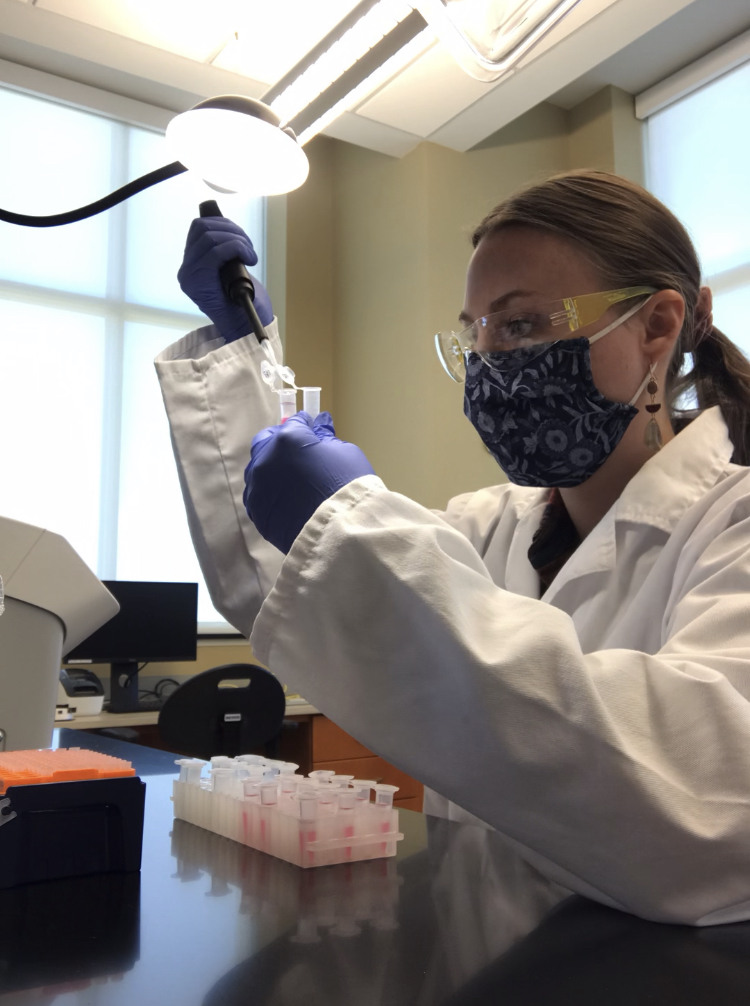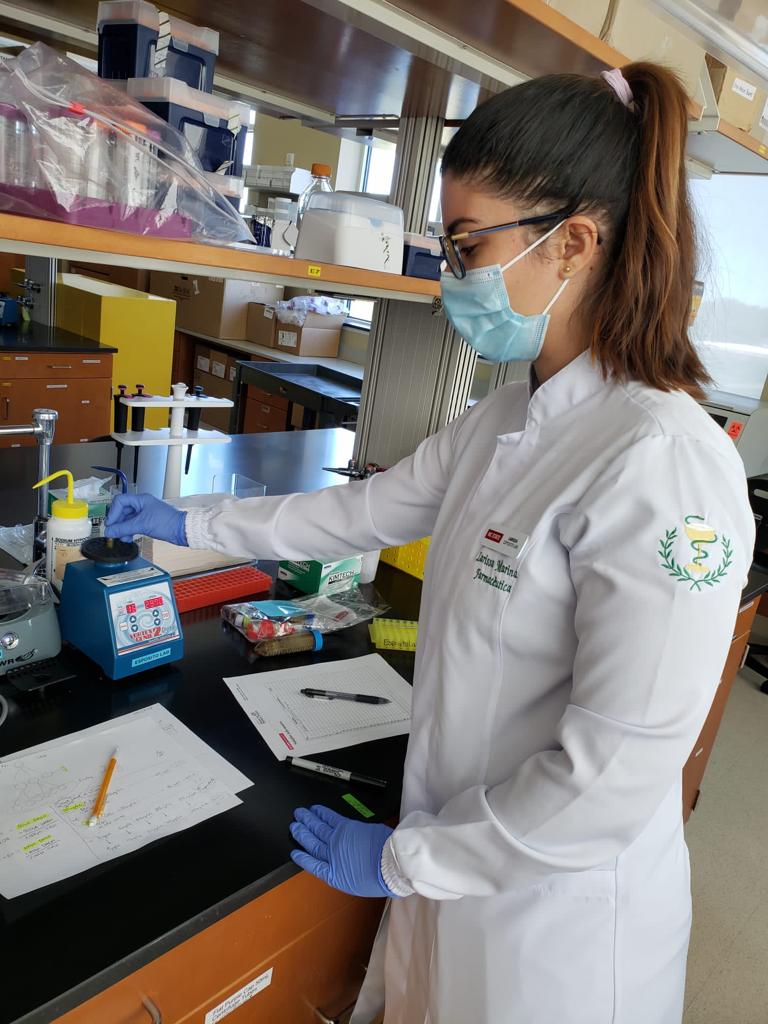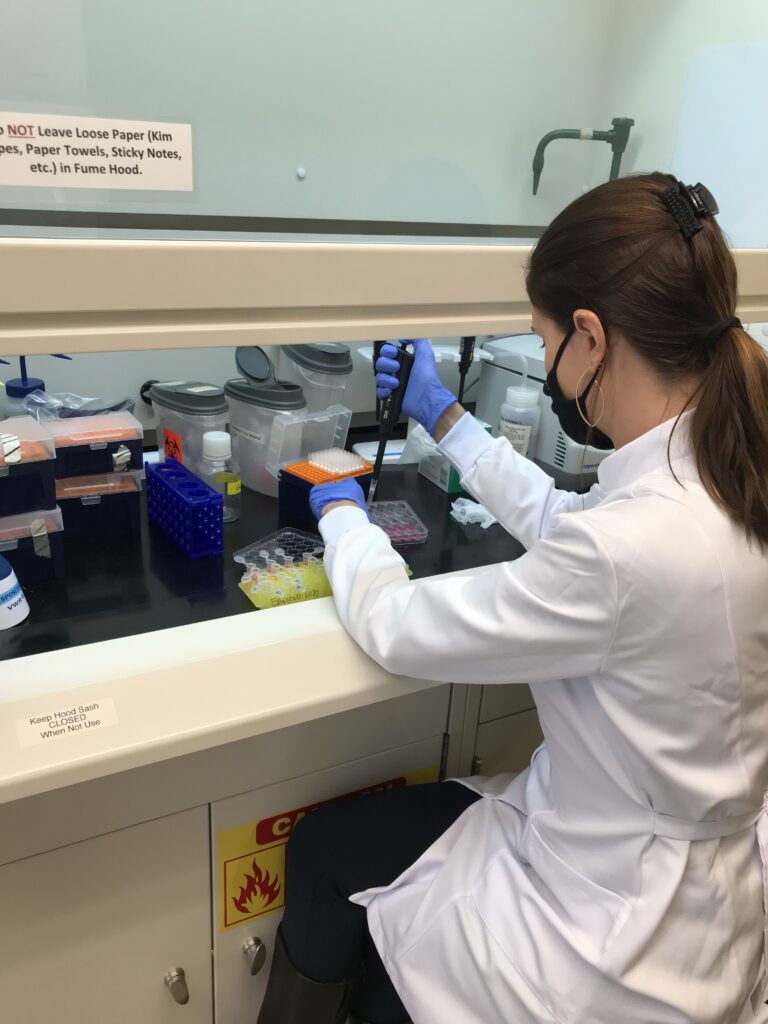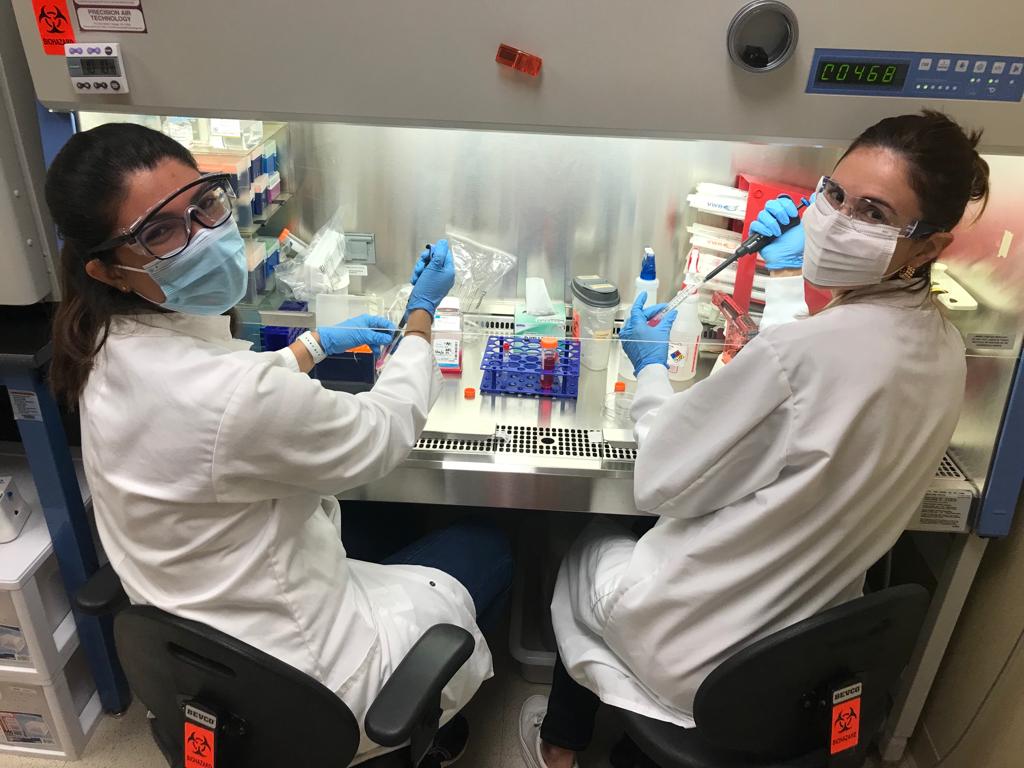After tight visitor restrictions for most of the NC Research Campus due to COVID-19 in 2020-21, labs are now beginning to open back up to visitors and visiting scholars. We are happy to announce the new members in the Esposito Lab!
In fall of 2020, Nick Thompson started his master’s program at NC State, joining our lab as a graduate student. His research project revolves around chicken models, focusing on brassinosteroid supplementation on muscle development and anti-inflammatory properties. He hopes to start a chicken embryo and live chicken trial in the near future.
In June of 2021, Jade Schlamb was hired as laboratory technician. She started learning the different techniques and experiments in the Esposito Lab, including maintaining cell cultures, and performing various assays like gene expression. As of now, she has been assisting Nick with his research project. Jade has also taken over most of the everyday managerial tasks, including training new lab members and ordering supplies.




In fall, three new visiting scholars arrived to the lab from different areas in Brazil. We are excited to welcome Larissa Silva, Silvana Zucolotto, and Reggiani Gonçalves. They are expected to stay for one year, and will continue to work on their research projects. There is also an opportunity to collaborate with other scientists and labs located at NCRC. Larissa’s project focuses on Moringa oleifera plant extracts, concentrating on the areas of wound healing, anti-diabetics, and anti-obesity. Her goal is to develop an herbal medicine using M. oleifera leaf extracts. She is currently advancing her understanding of the in vitro bioactivity of M. oleifera leaf flavonoid-rich extracts. Silvana’s project is focused on understanding the mechanism of action of phenolic-rich extracts from native Brazilian medicinal plants in downregulation and/or upregulation of specific gene expression involved in the production of markers of diabetes, inflammation and wound healing properties in in vitro assays. She believes the findings can contribute to the development of new phytotherapeutics or functional foods that can be used as an adjunct in treatment of chronic diseases. Reggiani’s project works with peptides extracted from animals and vegetables to increase the effectiveness of the wound healing process in pre-clinical models. Her goal is to assess and develop new topical formulations derived from natural products to treat different diseases especially cutaneous lesions, and to identify a therapy that provides fast, affordable and effective tissue repair.
